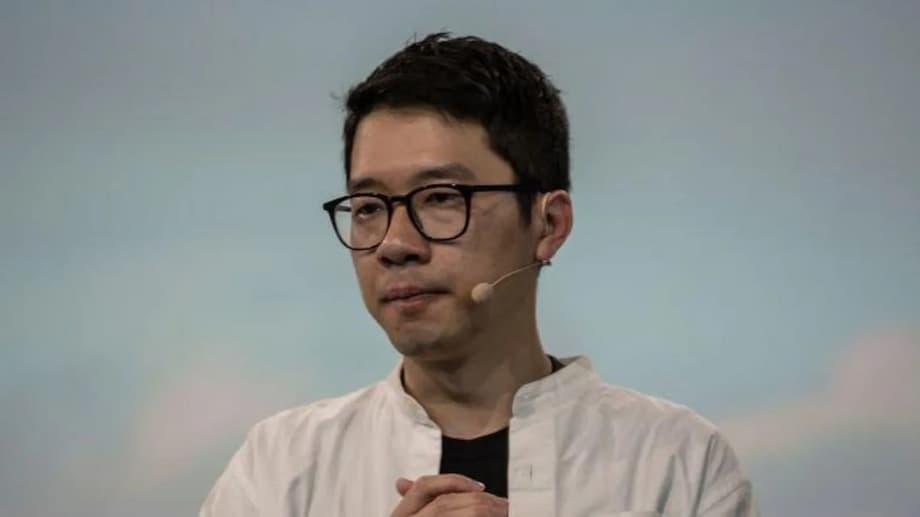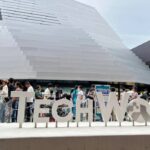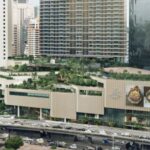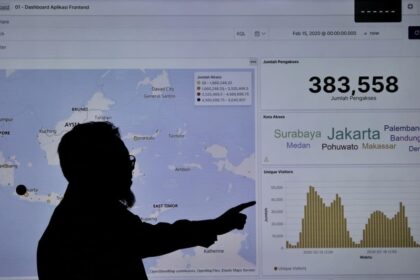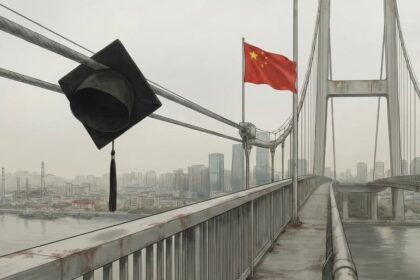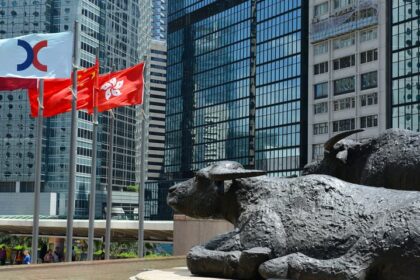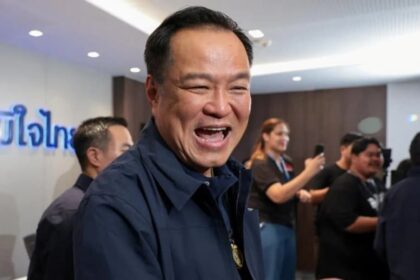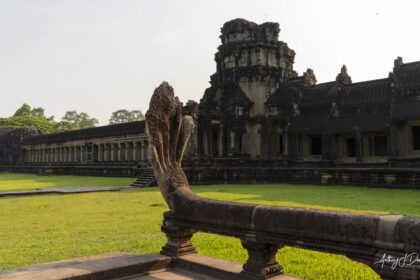A Sudden Turn at Changi Airport
Nathan Law, one of the most widely recognized figures in Hong Kong’s pro-democracy movement, said he landed in Singapore on Saturday expecting to attend a closed door, invitation only conference. Instead, he was held at the border, told hours later he would not be allowed to enter, and placed on the earliest flight out. Singapore’s Ministry of Home Affairs said his entry and presence would not be in the country’s national interests, a phrase the government has used in sensitive political cases.
- A Sudden Turn at Changi Airport
- Who is Nathan Law and why does he face arrest in Hong Kong
- What Singapore says about national interests
- How the trip unfolded and why a visa did not guarantee entry
- The Hong Kong national security law beyond the city
- Responses from Hong Kong and Beijing
- Why this case matters for Singapore policy and business
- How exiled activists plan travel in a changing legal landscape
- Key Points
Law holds a UK Refugee Travel Document and has lived in exile in Britain since 2020, the year Beijing imposed a sweeping national security law on Hong Kong. He said he had secured a visa that allowed a single entry for a short stay and that it was approved weeks before his trip. According to Law, immigration officers did not explain the decision at the counter. He spent about 14 hours in Singapore before being put on a flight back to San Francisco.
The case draws attention to two realities that often collide. One is the extraterritorial reach of Hong Kong’s national security system, which lists Law among eight overseas activists wanted for alleged offences. The other is Singapore’s long stated policy of keeping foreign political activism out of the city state. Visa approvals do not guarantee entry, and border authorities retain broad discretion. That combination set the terms for what happened at Changi Airport.
Who is Nathan Law and why does he face arrest in Hong Kong
Law rose to prominence during the 2014 Umbrella Movement, a student led campaign that pushed for greater electoral choice in Hong Kong. He later cofounded the political group Demosisto and won a seat in the legislature in 2016, becoming one of the youngest lawmakers in the city’s history. He was subsequently disqualified after a dispute over his oath of office, and in 2020 he left Hong Kong just before the new security law took effect.
After relocating to the United Kingdom, Law continued to advocate for civil and political rights in Hong Kong. In 2021, he was granted asylum. In 2023, Hong Kong police issued arrest warrants for Law and seven other exiled figures and offered rewards for information leading to their arrest. Authorities accuse him of offences such as collusion with foreign forces and incitement, allegations he rejects.
- Student leader in the 2014 Umbrella Movement
- Cofounder of Demosisto
- Elected to Hong Kong’s legislature in 2016, later disqualified
- Left Hong Kong in 2020 after the national security law was introduced
- Granted asylum in the UK in 2021
- Listed by Hong Kong police in 2023 with a reward for information leading to arrest
What Singapore says about national interests
Singapore’s Ministry of Home Affairs said Law was referred for questioning and for immigration and security assessment upon landing. The ministry also stressed a point that applies to any visitor: holding a visa does not guarantee entry. Officials have long argued that Singapore should not become a platform for political contests from other places, and that immigration decisions can reflect that position.
The ministry’s stance was clear in its public statement about this case. Officials said Law’s presence would not serve the country’s interests. The wording aligns with Singapore’s broader approach to border discretion and to matters it classifies as foreign politics.
In explaining its position, the government often cites the need to maintain social harmony and domestic stability. That rationale has appeared in previous actions involving Hong Kong activists. In 2019, a Singaporean activist was fined after hosting an online forum that featured Joshua Wong. Those moves fit a pattern: the state draws a line at activities that it believes import external political agendas.
Before releasing its formal statement, the ministry had already emphasized the general rule that a valid visa is one step in a process, not a guarantee. That principle underpinned the decision in Law’s case.
Singapore’s Ministry of Home Affairs: “Law’s entry into and presence in the country would not be in Singapore’s national interests.”
Singapore’s approach to foreign political activity
Singapore’s laws, including the Public Order Act and the Foreign Interference (Countermeasures) Act (FICA), reflect a long running policy against foreign influence in domestic affairs. Events with political content often require permits, foreign speakers can face restrictions, and authorities act against activities viewed as importing disputes from abroad. The government argues that these rules protect a diverse society and a business hub that prizes stability.
How the trip unfolded and why a visa did not guarantee entry
Law said he applied for a single entry visa weeks in advance and received approval roughly three weeks before departure. He traveled from San Francisco to Singapore to attend a private conference that was not open to the public. Upon arrival, he was sent to secondary checks, held for several hours and informed of the refusal. He remained in custody at the airport until he could board a return flight the next day.
Visa approvals are frequently contingent on further checks at the border. Many countries reserve the right to refuse entry after an assessment that considers security, public order and foreign policy. Singapore’s decision suggests that officials weighed Law’s wanted status in Hong Kong and the possible risks of his presence, including the chance that his visit could be viewed as a political signal.
- Saturday: Law arrives at Changi Airport from San Francisco
- Several hours of questioning and assessment
- Refusal communicated at the airport
- About 14 hours spent in Singapore facilities before departure
- Sunday: Placed on the earliest flight back to San Francisco
The Hong Kong national security law beyond the city
The national security law introduced in Hong Kong in 2020 reshaped the city’s political life. Authorities say it restored stability after the 2019 unrest. Critics say it criminalized broad categories of speech and activism. Hundreds of arrests followed, political parties dissolved or went dormant, major newsrooms closed, and vigils that once drew crowds were barred. Police later issued arrest warrants for several overseas activists and publicized rewards for information that could lead to their capture.
What the law covers
The statute includes offences such as secession, subversion, terrorism and collusion with foreign forces. These offences are defined broadly, and parts of the law apply extraterritorially, which means Hong Kong authorities claim the power to pursue cases against people outside the city. That reach has unsettled exiled activists and shaped their travel plans.
How it reaches overseas
Hong Kong has extradition agreements with a number of jurisdictions. After the security law took effect, many governments paused or ended their extradition arrangements with the territory. Singapore’s extradition arrangement remains in force. Extradition is not automatic, however. Treaties generally require dual criminality, and most include exceptions for political offences. Each request is governed by domestic law, the treaty’s terms, and an assessment of evidence. That is separate from border control decisions, where entry can be refused even if no extradition request exists.
Law’s wanted status under the Hong Kong system adds an obvious layer of complexity to any trip he makes, especially in Asia. Authorities in Singapore did not say an extradition request had been lodged. The government framed the decision strictly in terms of national interests and border discretion.
Responses from Hong Kong and Beijing
Officials in Hong Kong reiterated that jurisdictions handle immigration according to their own laws. A spokesperson urged Law to cease activities that the city labels as national security offences and to return to face justice. That comment is consistent with the police warrants and rewards that remain in place.
Hong Kong government spokesperson: “We urge Nathan Law to stop acts endangering national security and return to Hong Kong.”
In Beijing, a foreign ministry spokesperson described Law in hostile terms and stressed that he is on a wanted list compiled by Hong Kong police. The ministry said countries have the right to make immigration decisions.
Chinese foreign ministry spokesperson: “Nathan Law is an anti China, anti Hong Kong troublemaker who has been lawfully placed on the wanted list.”
Singapore officials did not link their decision to any request from Beijing or Hong Kong. Law said he believes the refusal was political but added that he is unsure whether external forces were involved directly or indirectly.
Why this case matters for Singapore policy and business
Singapore positions itself as a neutral, stable financial center that avoids becoming a venue for political contests among other states. That stance is not abstract. It informs decisions on permits for assemblies and on entry for foreign political figures. Officials argue that this approach protects social cohesion and the city’s standing as a hub for trade, logistics and finance. Companies prize predictability, and the state prioritizes that goal.
The language used in Law’s case mirrors past practice. When authorities warn against importing foreign politics, they signal a boundary that applies regardless of the individual in question. Singapore’s rules can be strict. Foreign speakers at political events need approval, public assemblies require permits, and online events have triggered enforcement actions. That policy reduces risk that domestic politics gets pulled into regional disputes.
For Singapore’s relations with China, the government tends to calibrate decisions to avoid being drawn into others’ conflicts while keeping ties smooth with major partners. Maintaining an extradition arrangement with Hong Kong while exercising discretion at the border fits that careful middle course. It also reflects the state’s instinct to manage any situation that could produce bilateral friction or social tension at home.
How exiled activists plan travel in a changing legal landscape
Law’s experience highlights a practical reality for dissidents who hold refugee documents or alternative travel papers. A visa can be granted, travel can be booked, and a conference can be private. Yet entry can still be refused at the final checkpoint. The combination of security laws with extraterritorial claims, live arrest warrants and broad border discretion makes travel a constantly shifting calculus.
Activists and their advisers often weigh the risk profile of destinations. Regional politics, extradition agreements, and local definitions of public order all factor into choices. Many avoid places where authorities maintain close coordination with Hong Kong or where border officers have a record of refusing entry in politically sensitive cases. Some limit travel to countries that suspended extradition arrangements with Hong Kong or that have strong protections against political offences.
- Check whether extradition agreements with Hong Kong are active
- Review domestic laws on public order, foreign interference and public speaking
- Plan routes with contingency options if entry is denied
- Carry legal contacts and consular information in case of detention
- Understand that refugee travel documents do not guarantee border clearance
Key Points
- Singapore refused entry to exiled Hong Kong activist Nathan Law, saying his presence would not be in the national interests.
- Law said he held a valid visa and UK Refugee Travel Document and was not given a reason at the counter.
- He arrived from San Francisco, was questioned and assessed, then put on the earliest return flight after about 14 hours.
- Law is wanted by Hong Kong police under the national security law, with rewards offered for information leading to his arrest.
- Singapore maintains an extradition arrangement with Hong Kong and opposes importing foreign politics into its domestic sphere.
- Hong Kong urged Law to cease activities it deems criminal and to return, while Beijing labeled him a troublemaker on a wanted list.
- The case underscores how visa approvals do not guarantee entry and how border discretion intersects with political sensitivities.


